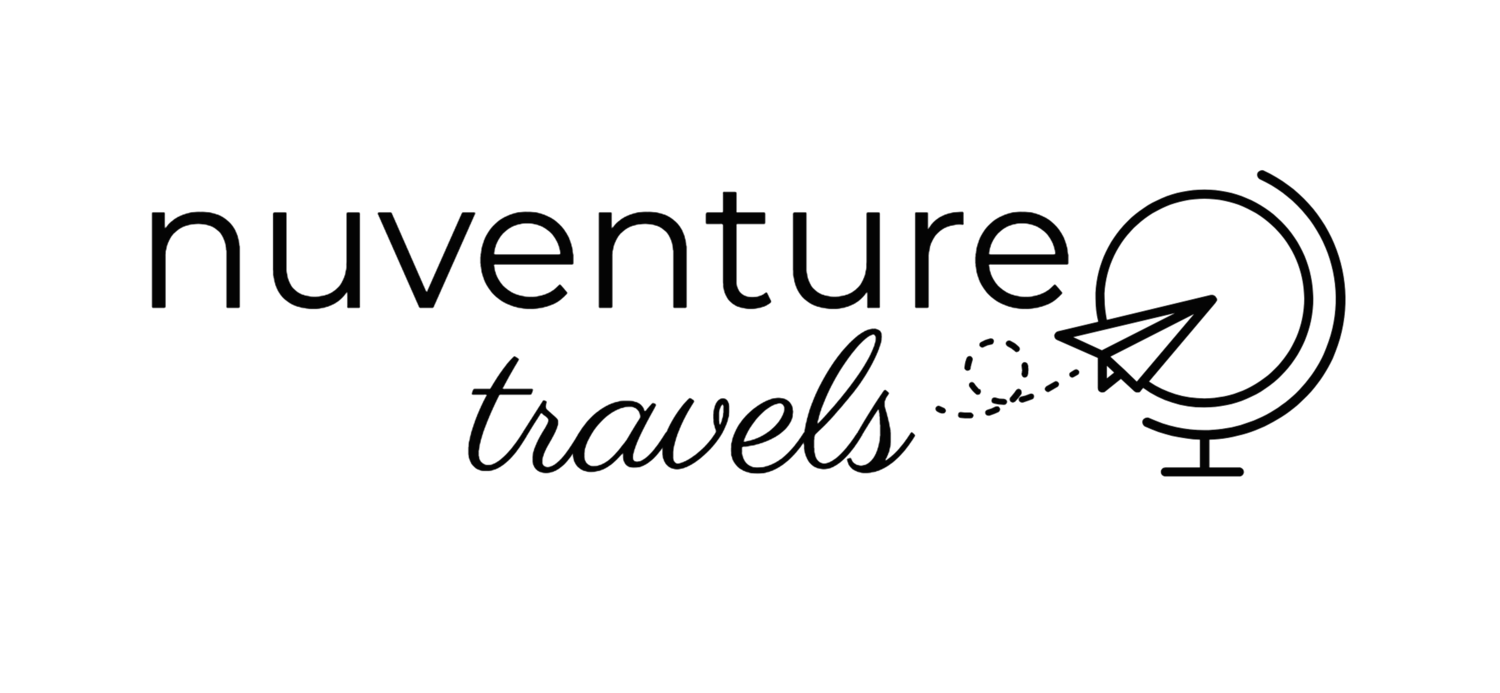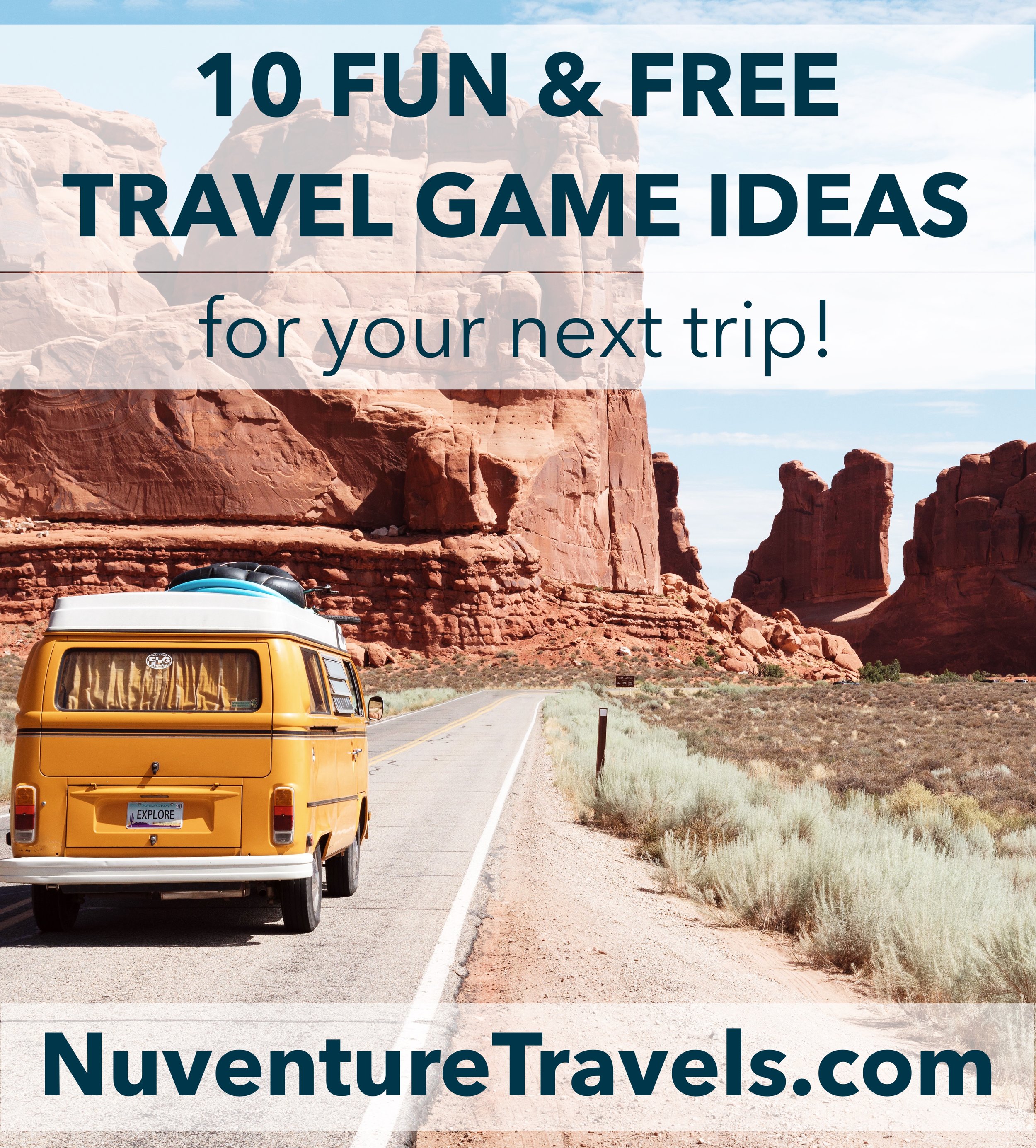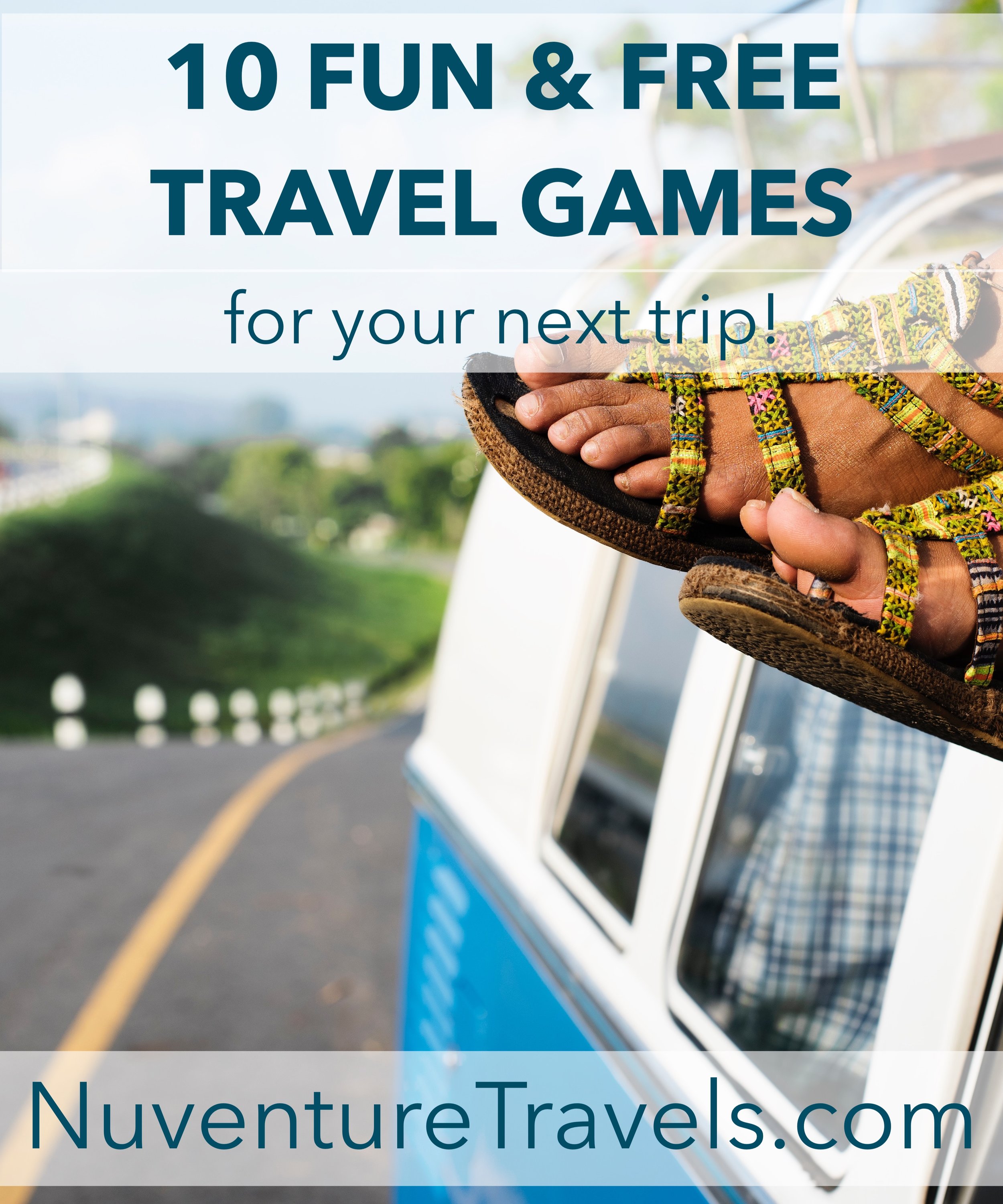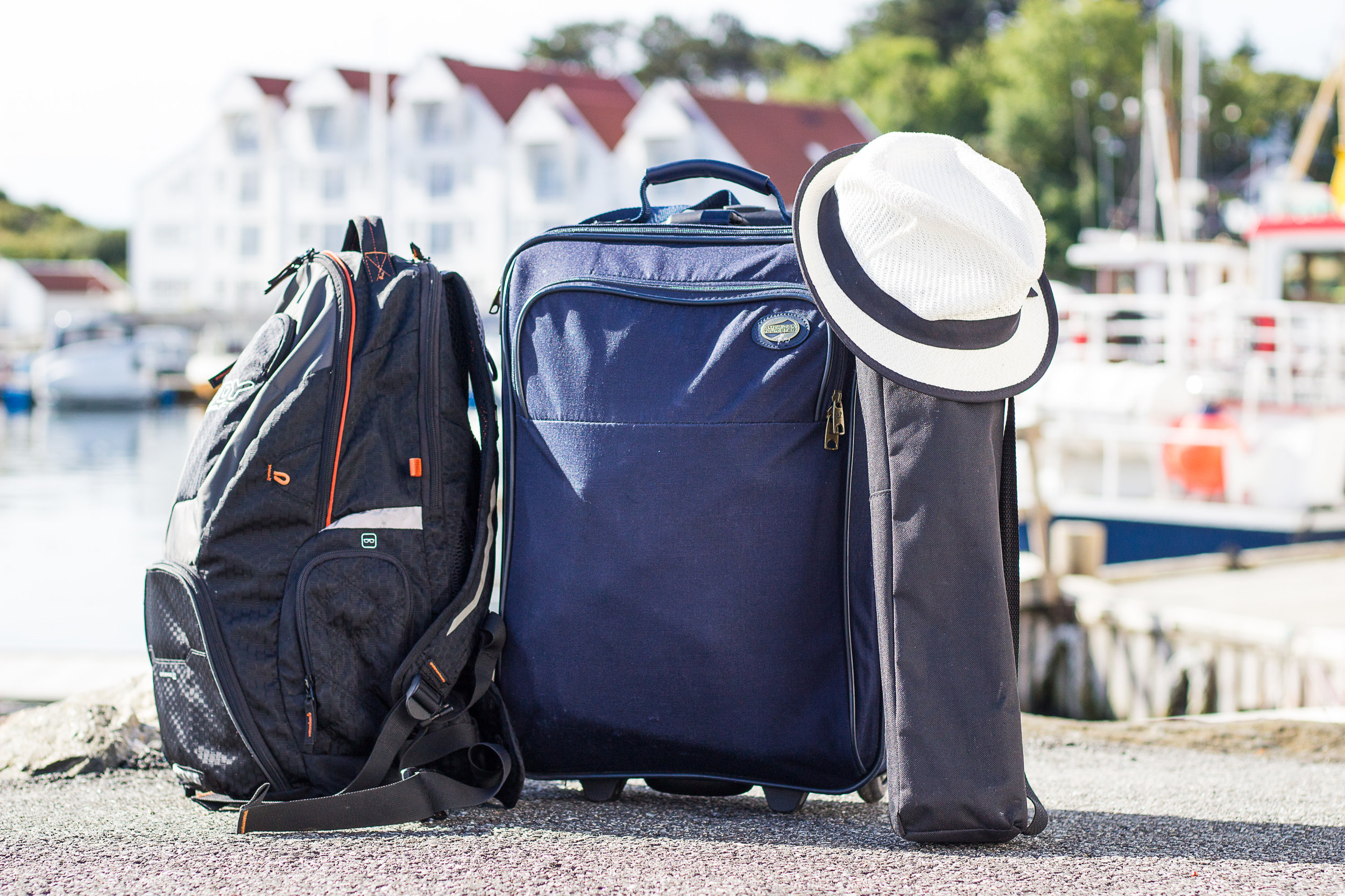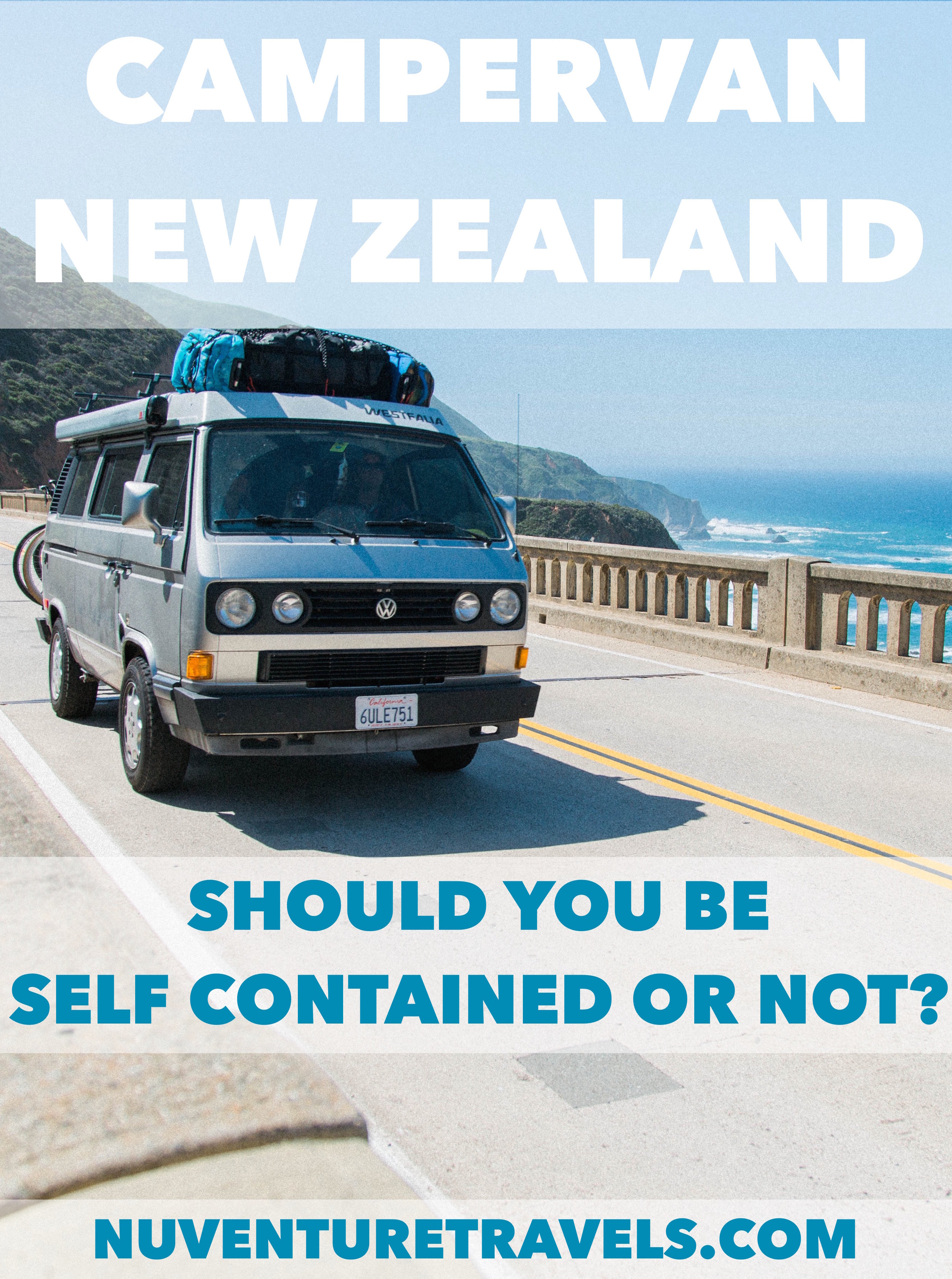Let's be real, long journeys can get a bit dull, like five hours in on your cross country road trip. Instead of scrolling our phones for the millionth time, let's make fun new memories together with some good ol' games! Here's a few we like to play on our trips!
10 Fun & Free Travel Game Ideas for Your Next Trip!
1. Hot Seat
This is my all time favorite game- well, right after our game 501 Questions: A Travel Game!
Hot Seat is asking one person in a group, rapid-fire questions for a specific duration of time. So, to play, choose one person to be in the hot seat. Then, choose how much time someone's in the hot seat. It can be one, two, or three minutes. Then, set a timer for that amount of time. Once the timer starts, everyone asks the person in the hot seat questions until the timer buzzes. You can ask any question that comes to mind. Once the first person’s turn is over, then you pick the next person to be in the hot seat, set the timer, and everyone asks the next person questions until the timer buzzes. You repeat this until everyone in your group has had their turn in the hot seat. Then, you can start the next round by upping the time that each person is in the hot seat to five, ten, or even fifteen minutes. Longer times are fun for storytelling!
In college, a group of friends and I played this for hours on a road trip to Florida til we were at 20 minutes per person! This game tightened our friendships immensely!
2. Two Truths and a Lie
Ooo! I love this game, too! So, to play Two Truths and a Lie, one person shares three things about themselves; two things being true and one being a lie. Everyone has to guess which statement is the lie. If you guess the lie right, you get a point. The person with the most points at the end of the game wins. I love this game, because you learn surprising new things about everyone!
For example: Mine could be 1. I've scuba dived. 2. I've been to New Zealand. 3. I've eaten a cockroach. Which one's my lie?
3. 20 Questions
20 Questions is tons of fun! So, one player picks a person, place, or thing and keeps it a secret. Then, everyone takes turns asking yes or no questions to try to guess what they're thinking of. The goal is to figure out what it is in 20 questions.
Have Fun, Laughter, and Good Conversation on Your Next Trip!
Unplug and get to know your travel pals better with our new game 501 Questions: A Travel Game! It’s perfect for long road trips and around the campfire with 750 entertaining questions and trivia for fun, laughter, and good conversation on your next trip! The game’s available on Amazon in paperback and Kindle versions here.
“…highly recommend for your next trip (and all trips!). It’s a fantastic way to start conversations while you’re driving, out on a hike, or hanging around the campground!”
-CAMPING WORLD
4. Group Storytelling
This is a fun one and you never know which way the story will turn! The way it starts is one person in the group starts out with the first line of the story. Then, each person takes turns sharing the next sentence of the story. If you want to make it more interesting, you can create a rule that each sentence has to rhyme with the one said before it. Bring on the drama and mystery!
5. The Grocery Store Game or National Park Game
This one’s tradition! My parents and I played this on our long trips for the holidays. The game is a memory game working with the alphabet. So, someone starts out, "I went to the grocery story and bought Apples. Then the next person repeats, “I went to the grocery store and bought Apples,” then adds, “and Bananas.” Then the next person repeats, “I went to the grocery story and bought Apples, Bananas…” then adds, “and Celery.” Each person keeps adding an item at the grocery store that starts with the next letter of the alphabet til you end at Z. It’s fun when everyone gets creative with the items and it’s hard to remember!
You can also do other fun concepts, “I went to the National Park and saw a …” or “I went on a picnic and brought a…”
6. The License Plate Competition
This is a fun game for some good competition in the car. See who can find license plates from the most states from cars driving by. Each state is one point. If you see plates from other countries, they count for two points! The person who gets the most points wins and gets to pick the dinner spot or pays for ice cream or any other creative ideas you have.
7. Rapid Fire Word Association
This one is easy to keep progressing, is hilarious, and can get competitive! So, someone says a word, and then the next person says a word associated to it, and so on until someone is stumped or takes too long to think of a word. The person who ended the round is out, and everyone competes until there's a winner. I just played this on a girl's road trip and this game had us rolling! It's fun to see where everyone's minds go associating words! For example: National Park, Arches, Desert, Cactus, Green, Grass, Spring, Easter Bunny, Marshmallows, Chubby Bunny
8. Rumor Has It
This one can get funny! Everyone in your car chooses another car. Then everyone in your car looks at everyone in the other car closely. Now, don't get too creepy! Then, your car all comes up with a background story of the people, their lives, and relationships. Bring on the drama!
9. License Plate Funny Phrases
This one stretches your mind and takes some creativity! Someone picks out a license plate they see and creates a funny phrase with the letters in the order they see them. For example, if you see AJK 295, you could say Apple Jack’s King!
10. Fortunately/Unfortunately
This game goes back and forth between people sharing a “fortunate” statement, then an “unfortunate” statement. And, it can get pretty funny! For example:
“Fortunately, we’re going to get to our hotel early!”
“Unfortunately, our room isn’t clean.”
“Fortunately, then we can go to the beach right away.”
“Unfortunately, we don’t have a room to change into our bathing suits.”
“Fortunately, we don’t need bathing suits for the beach!”:)
BONUS: 3 MORE FUN GAMES!
Here’s three of our favorite travel games (that aren’t free), but are a blast and fun to play on the road!
11. 501 Questions: A Travel Game
If you haven’t gotten it yet, this is our absolute favorite game to play on our travels (and we created it)! We created it to stop scrolling, and connect with each other. It's loaded with 501 awesome conversation starters for ages 4-104!
Ask questions like:
Would You Rather: Find yourself standing in a flock of butterflies or swimming in a bioluminescent bay?
If You Could: Take a round-the-world trip, what would be the first country you'd visit on each continent?
Tell Me About: One thing you're itching to do, you haven't done yet?
Travel Trivia: What country is The Land of Smiles?
When conversation dwindles and you have the urge to pick up your phone, grab this book instead. Turn the dull moments of your travels into fun new memories!
12. Punderdome: A Card Game for Pun Lovers
If you love puns, this is your game! You pick two cards from the deck that have different statements and you have to make a pun merging the two ideas.
For example, one time we pulled the cards “Seeing Your Ex” and “Wild Animals.” Adam’s brother is brilliant at puns and said, “She’s always been straight lion.” He’s so good!
13. Convers_(ate)
If you love intentional conversations Convers_(ate) is your game! Our friends Mollie and Taylor created this game to take a group through an intentional conversation with open ended questions. The topics are awesome like Community, Wealth, Food, Holidays, Generosity, etc.
Each topic card has an ice breaker question so on some trips, my family’s just played with the ice breaker questions. You go deep and learn a lot about family and friends with these!
MAKE REMEMBERING THESE GAMES EASIER!
1. Pin this for later here.
2. And, download this game list to pull up on your trip.
Have Fun, Laughter, and Good Conversation for Your Next Trip!
Unplug and connect on long road trips and around the campfire with fun conversation starters! With our new game 501 Questions: A Travel Game you get 750 entertaining questions and trivia to have fun, laughter, good conversation, and make the time fly!
“…highly recommend for your next trip (and all trips!). It’s a fantastic way to start conversations while you’re driving, out on a hike, or hanging around the campground!” -CAMPING WORLD
